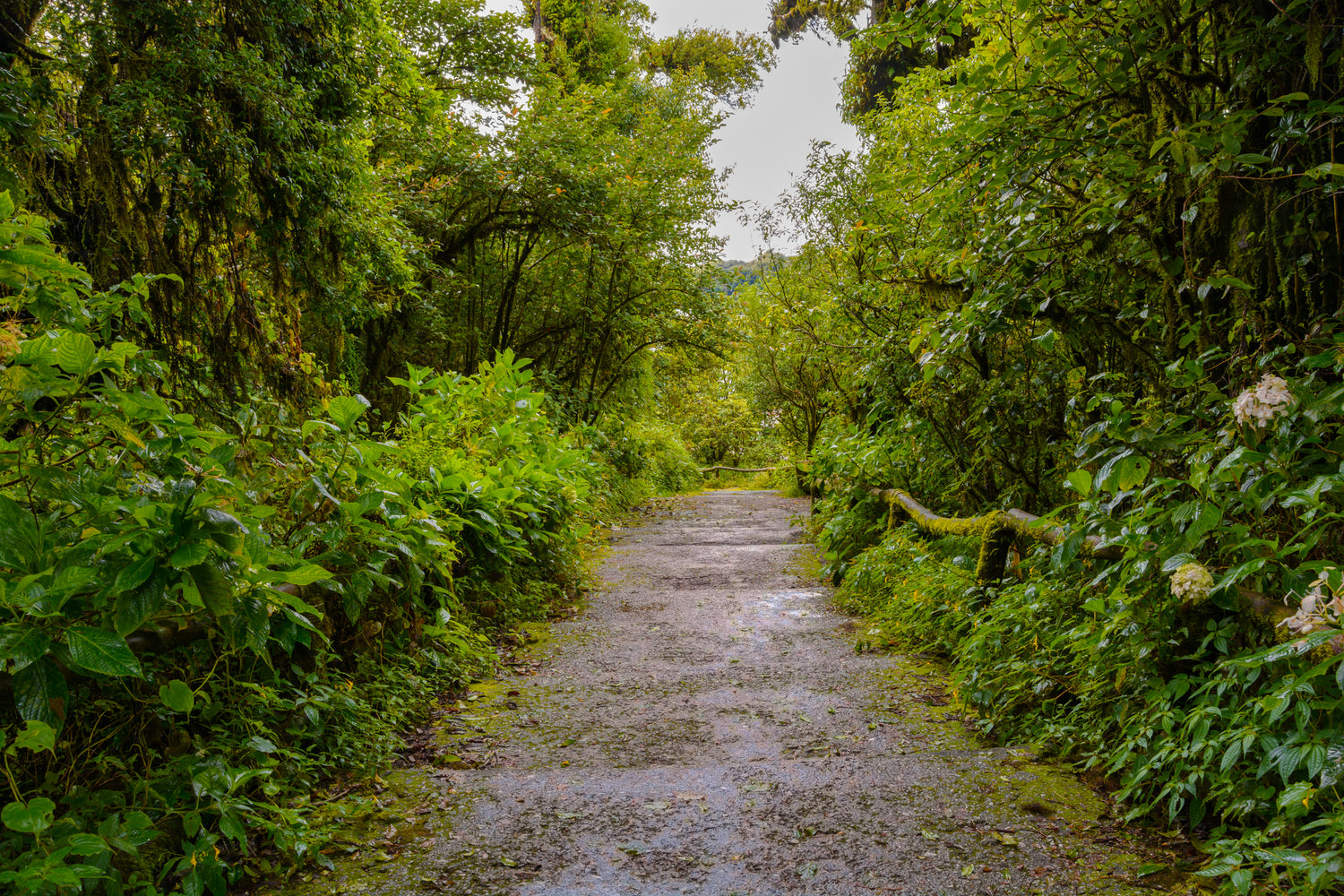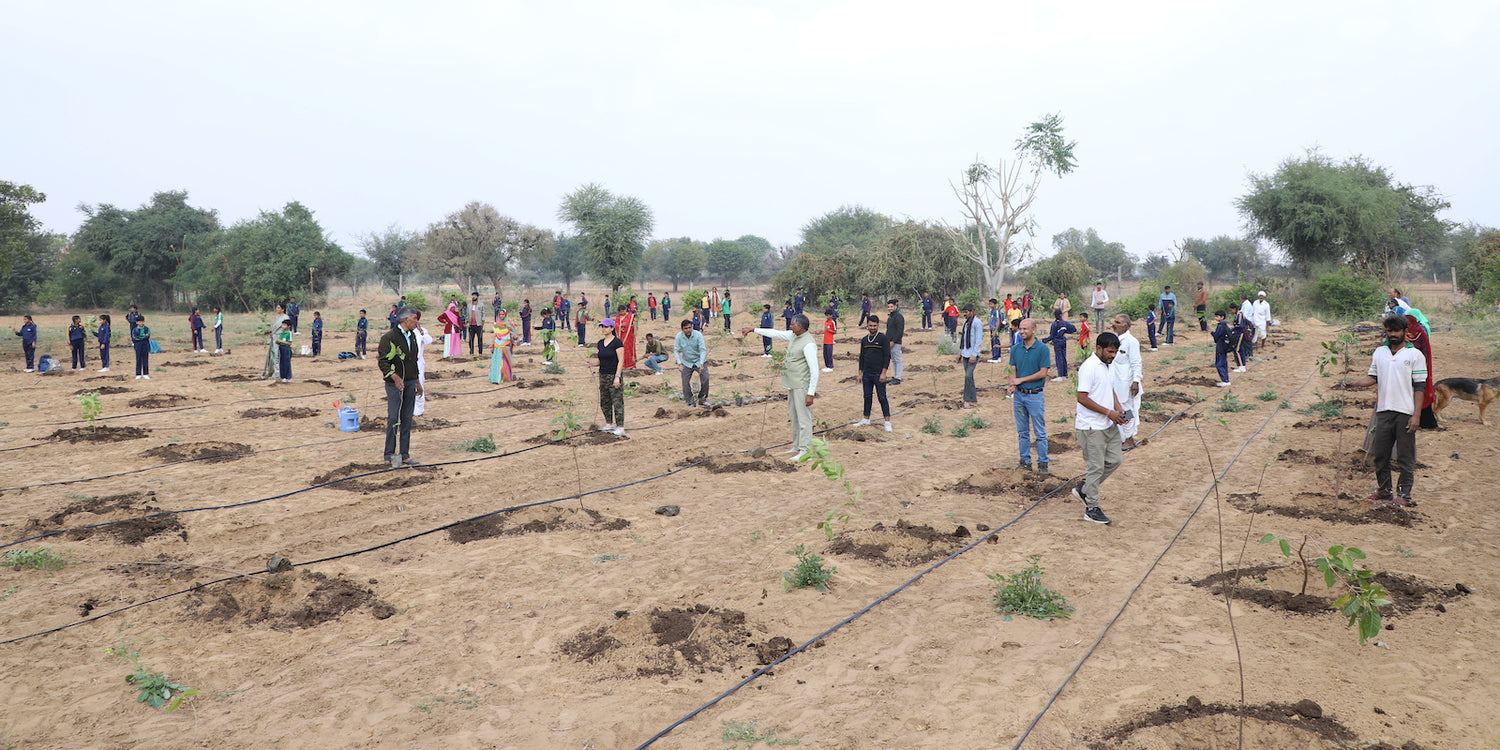Miyawaki Forest in Punjab
In the heart of Punjab, a green revolution is quietly taking root. The Miyawaki Forest method, a unique approach to afforestation, is transforming bar Read more
Connect with us
-
👥 Corporates
If you are looking for:
- 🌲 Tree Plantation Events
- 📊 CSR Projects
📧 corporate@growbilliontrees.com
📞 +91 9699723523
💬 +91 9325931304 WhatsApp (Only)
🕒 Mon - Sat | 10am - 7pm IST
-
🧩 Tree Plantation NGOs
If you are looking for:
- 💰 Financial Assistance
- 🤝 Operational Support
📧 support@growbilliontrees.com
📞 +91 9699723523
💬 +91 9325931304 WhatsApp (Only)
🕒 Mon - Sat | 10am - 7pm IST
-
🌼 Individuals
If you are looking for:
- 👥 Group Tree Plantation Drive
- 🌳 Bulk Tree Plantation
📞 +91 9699723523
💬 +91 9325931304 WhatsApp (Only)
🕒 Mon - Sat | 10am - 7pm IST
Plantation Gallery
Trending
Trees for Corporates
Miyawaki Forest in Punjab
In the heart of Punjab, a green revolution is quietly taking root. The Miyawaki Forest method, a unique approach to afforestation, is transforming barren lands into lush, thriving ecosystems. This innovative technique is not just about planting trees; it's about restoring nature's balance and creating sustainable habitats.
The Miyawaki method, named after Japanese botanist Akira Miyawaki, involves planting native species in a dense, layered manner. This approach mimics natural forests, promoting rapid growth and biodiversity. In just a few years, these forests become self-sustaining, requiring minimal maintenance.
Punjab, known for its rich agricultural heritage, is embracing this method to combat deforestation and environmental degradation. The state's commitment to green initiatives is evident in its collaboration with various stakeholders to expand Miyawaki forests across the region.
One of the key players in this green movement is Grow Billion Trees, an organization dedicated to large-scale afforestation. They are partnering with corporates, government bodies, and volunteers to conduct regular tree plantation drives. This collaborative effort is crucial in scaling up the Miyawaki method in Punjab.
Corporates are playing a significant role by providing financial support and resources. Their involvement not only aids in the creation of forests but also enhances their corporate social responsibility profiles. This partnership is a win-win, benefiting both the environment and the companies involved.
The government, on its part, is facilitating these initiatives by providing land and logistical support. Their involvement ensures that the projects align with regional environmental goals and policies. This synergy between public and private sectors is vital for the success of the Miyawaki forests.
Volunteers, the backbone of these initiatives, bring passion and energy to the projects. Their hands-on involvement in planting and nurturing trees is invaluable. These community-driven efforts foster a sense of ownership and responsibility towards the environment.
The impact of Miyawaki forests in Punjab is already visible. These green patches are improving air quality, enhancing biodiversity, and providing habitats for various species. They also play a crucial role in mitigating climate change by sequestering carbon dioxide.
Moreover, these forests offer educational opportunities for local communities. Schools and colleges are incorporating visits to Miyawaki forests into their curriculum, raising awareness about environmental conservation among students.
The success stories emerging from Punjab are inspiring other regions to adopt the Miyawaki method. The rapid transformation of barren lands into vibrant ecosystems is a testament to the method's effectiveness and potential.
Grow Billion Trees is committed to expanding these efforts, aiming to plant millions of trees in the coming years. Their vision is to create a network of Miyawaki forests that will serve as green lungs for the region.
For those interested in supporting this cause, there are numerous ways to get involved. Donations, volunteering, and corporate partnerships are all avenues through which individuals and organizations can contribute to this green revolution.
As we look to the future, the Miyawaki forests in Punjab stand as a beacon of hope and inspiration. They remind us of the power of collective action and the impact we can have when we work together towards a common goal.
In conclusion, the Miyawaki method is more than just a tree-planting technique; it's a movement towards a sustainable future. With the support of Grow Billion Trees, corporates, government, and volunteers, Punjab is leading the way in this green transformation.
Join us in this journey to restore nature's balance and create a greener, healthier planet for future generations. Together, we can make a difference, one tree at a time.
Miyawaki Method
The Miyawaki Method is like the secret sauce for growing forests faster than you can say "photosynthesis." Developed by Japanese botanist Akira Miyawaki, this method involves planting a variety of native species close together, creating a dense, biodiverse forest in record time. In Punjab, this method is turning barren lands into lush green havens, making trees the new celebrities of the ecosystem. It's like speed dating for plants, where they all get together and grow happily ever after, leaving us humans in awe of their rapid transformation.
Urban Afforestation
Urban afforestation is the superhero cape that cities like Punjab are donning to combat pollution and climate change. By planting Miyawaki forests in urban areas, cities are not just adding greenery but also improving air quality and reducing the urban heat island effect. It's like giving the city a green makeover, where trees become the new skyscrapers, and oxygen is the currency of coolness. So, next time you're stuck in traffic, just remember, there's a mini-forest nearby working hard to keep your air fresh.
Biodiversity Boost
Biodiversity boost is the ecological party that Miyawaki forests are throwing in Punjab. By planting a variety of native species, these forests create a habitat for countless birds, insects, and animals. It's like opening a new restaurant in town, and suddenly, everyone wants to check it out. The result? A thriving ecosystem where every creature has a role to play, and nature's balance is restored. So, if you're ever feeling down, just visit a Miyawaki forest and let the chirping birds and buzzing bees lift your spirits.
Carbon Sequestration
Carbon sequestration is the fancy term for trees doing their part in the fight against climate change. Miyawaki forests in Punjab are like carbon vacuums, sucking up CO2 and storing it in their trunks, branches, and roots. It's like having a personal trainer for the environment, where trees work out tirelessly to keep the planet fit and healthy. So, while you're busy counting calories, these forests are busy counting carbon molecules, making sure our planet stays in shape.
Community Involvement
Community involvement is the secret ingredient that makes Miyawaki forests in Punjab a success story. Local communities come together to plant and nurture these forests, creating a sense of ownership and pride. It's like a neighborhood potluck, where everyone brings their favorite dish, and together, they create something beautiful. The result is not just a forest but a community bonded by a shared love for nature and a commitment to a greener future.
Soil Restoration
Soil restoration is the unsung hero of the Miyawaki forest saga. By planting diverse species, these forests improve soil health, increase water retention, and prevent erosion. It's like giving the soil a spa day, where it gets pampered and rejuvenated, ready to support new life. In Punjab, this means turning degraded lands into fertile grounds, where plants can thrive and farmers can smile. So, next time you see a Miyawaki forest, give a nod to the hardworking soil beneath your feet.
Climate Resilience
Climate resilience is the armor that Miyawaki forests provide against the unpredictable whims of climate change. By creating dense, biodiverse ecosystems, these forests help stabilize local climates, reduce flooding, and provide shade. It's like having a weather insurance policy, where trees are the agents working tirelessly to protect us from nature's mood swings. In Punjab, this means a future where communities are better equipped to handle whatever Mother Nature throws their way.
Native Species
Native species are the VIP guests at the Miyawaki forest party. By planting local flora, these forests ensure that the ecosystem is in harmony with the surrounding environment. It's like inviting the right people to a party, where everyone gets along, and the vibe is just right. In Punjab, this means forests that are not only beautiful but also resilient, supporting local wildlife and preserving the region's natural heritage. So, next time you visit a Miyawaki forest, take a moment to appreciate the native stars of the show.
You may like
Corporate Plantations
FAQ
What is a Miyawaki Forest and how does it work?
A self-sustaining, biodiverse forest that grows 10 times faster and is 30 times denser than conventional plantations. At Grow Billion Trees, we embrace this method to transform barren lands in Punjab into lush green havens, boosting biodiversity and combating climate change. It's like nature's version of a fast-forward button!
Why is the Miyawaki method gaining popularity in Punjab?
The Miyawaki method offers numerous environmental benefits, especially in Punjab. By creating dense forests, it enhances biodiversity, improves air quality, and helps in carbon sequestration. These forests also act as natural water filters and provide habitats for various species. At Grow Billion Trees, we believe in the power of Miyawaki forests to combat climate change and restore ecological balance. It's like giving Mother Nature a much-needed spa day!
What challenges does the Miyawaki method face in Punjab?
A Miyawaki Forest in Punjab can mature in as little as 20-30 years, compared to the 100 years it takes for a conventional forest. The initial growth phase is rapid, with significant development visible within the first three years. At Grow Billion Trees, we love this method because it offers a quick turnaround for creating green spaces, making it perfect for impatient nature lovers. It's like watching a nature documentary on fast-forward!
What types of trees are used in Miyawaki Forests in Punjab?
In Miyawaki Forests, native species are the stars of the show. In Punjab, this includes a mix of trees, shrubs, and ground cover plants that are indigenous to the region. At Grow Billion Trees, we carefully select species that complement each other, ensuring a balanced ecosystem. This approach not only supports local wildlife but also ensures the forest's resilience and sustainability. It's like curating a botanical symphony!
How can individuals contribute to Miyawaki Forest projects in Punjab?
Miyawaki Forests have a profound impact on local communities in Punjab by improving air quality, providing recreational spaces, and enhancing biodiversity. They also offer educational opportunities and promote environmental awareness. At Grow Billion Trees, we believe these forests are not just about trees; they're about creating healthier, happier communities. It's like giving the gift of nature to future generations, wrapped in a bow of sustainability!























